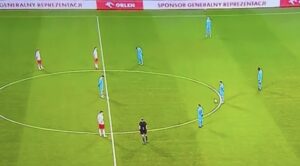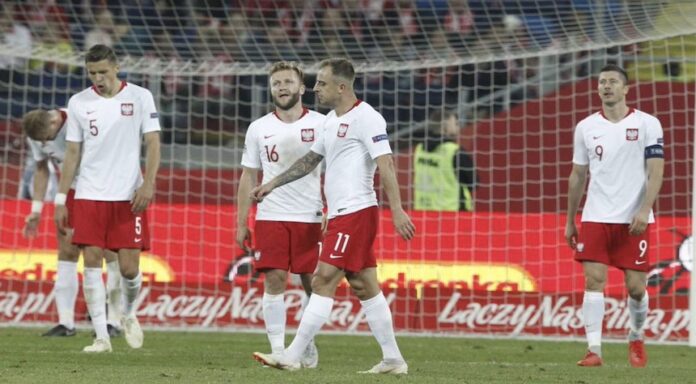It’s hard to imagine people who can’t come together to condemn the Hamas terrorist attack on Israel.
We saw that the UN was so full of anti-Israel folks that they refused even that basic humanitarian gesture. They knew they would face anger from various countries if they did it, so they couldn’t bring themselves to do the right thing. Yet, they passed without trouble a resolution calling for a ceasefire that would help the terrorists. That’s how screwed up the UN is.
It’s not just the UN that has a twisted view of the issue.

The Union of European Football Associations (UEFA) refused to observe a minute of silence in response to the attack on 7 October. Shame on them, for they are such cowardly individuals.
When Israel’s Under-21 and Poland’s Under-21 soccer teams met in Lodz on Friday, the two nations found a way to get around the refusal from the governing body. At the start of the match, the players of both teams were allowed to have a moment.
UEFA refused to organize a minute of silence before the start of the match between #Israel and Poland (under-21 team). In response, the two teams decided not to play the first minute of the match and observe a minute of silence in homage to the victims of #7October pic.twitter.com/wcwojTDBUy
— Michael Weingardt (@Michael_Wgd) November 17, 2023
After the whistle was blown to begin the match, both sets of players stood silently and there were no actions in the first minute. The players did not form a traditional line to pay tributes before the match but remained in formation. There was silence at Stadium LKS.
Poland won the match 2-1.
UEFA has not yet made a public statement on the players’ actions. They were hopefully shamed to understand how bad the actions of the governing body were.
I love Poland. ❤️🇵🇱 🇺🇦🇮🇱 https://t.co/58vWsSaEpK
— John Ondrasik (@johnondrasik) November 18, 2023
It was a great move on the part of all players to step up and take action against the bad decision made by UEFA. The Polish team showed true sportsmanship. In this case, they show that the “under 21” has more morals than the supposedly adult governing body.
It was even more fascinating and appropriate to me, considering the history of Lodz. In 1939, after the Nazi invasion of Poland, the Nazis created the second-largest Jewish ghetto. The Nazis forced the Jews and Roma into the ghetto where they were used as slave labor. The conditions were horrendous for thousands of people, who were crammed in a small space, surrounded by barbed wire and Nazi guards. The harsh conditions, including overwork and lack of food, led to many deaths. In 1942, the Nazis started deporting people to death camps.
This is the closest I have ever come to liking soccer. @omriceren @hughhewitt https://t.co/TNBQoeCVs6
— Kurt Schlichter (@KurtSchlichter) November 18, 2023
Be the leader you want to see in the world https://t.co/7qFXSciRLN
— Asra Nomani (@AsraNomani) November 18, 2023










